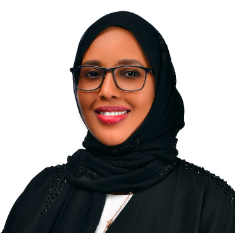
The United States Agency for International Development (USAID) plays a critical role in advancing global development and humanitarian assistance.
In East Africa, a region characterized by its rich biodiversity, cultural diversity and economic potential - USAID has been instrumental in supporting these countries, including Kenya, Uganda, Tanzania, Somalia, South Sudan and Ethiopia by addressing various challenges in healthcare, food security, education and governance.
However, recent challenges faced by USAID have disrupted these efforts, creating uncertainty and affecting the region's progress.
To reduce dependency on USAID, East African countries should seek alternative funding from other international donors, private sector partnerships, and regional organizations.
Diversifying funding sources can provide financial stability and ensure the continuity of critical programs.
Investing in building local institutions and organizations can enhance self-sufficiency and reduce reliance on foreign aid.
Strengthening local capacities enables communities to take ownership of development projects and ensures long-term sustainability.
Implementing robust monitoring and evaluation systems is essential to ensure transparency and accountability in aid projects.
These mechanisms can help track progress, identify areas for improvement, and ensure that resources are used effectively.
Similarly, fostering regional partnerships can facilitate the sharing of resources, knowledge, and best practices among East African countries. Collaborative efforts can help address common challenges and enhance the region's resilience to external shocks.
In conclusion, the USAID funding freeze poses significant challenges to the development and humanitarian sectors in East Africa.
The reduction in aid has disrupted essential services, impacting healthcare, education, economic development, and emergency assistance.
However, by diversifying funding sources, strengthening local capacities, enhancing accountability mechanisms, and fostering regional cooperation, East African countries can mitigate the negative impacts and continue their progress toward sustainable development.
Proactive measures and strategic planning will be essential to ensure that the gains made in recent years are not lost and that the region continues to move forward on the path to prosperity and stability.
Stakeholders, including governments, international organizations, and the private sector, must collaborate and innovate to address these challenges and ensure a brighter future for East Africa.
The writer is a gender specialist









